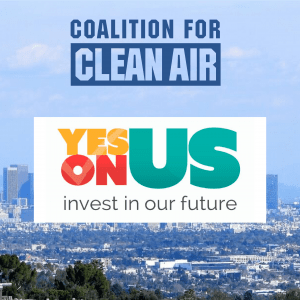Confronting systemic racism is an uncomfortable, awkward, and emotional experience. Yet, ignoring it is not an option. As Long Beach begins the hard but necessary work of addressing systemic racism, we cannot overlook one of its most insidious forms: environmental racism.
This November, Long Beach voters can begin addressing environmental racism by voting for Measure US.
Measure US proposes to fund local climate and environmental, community health, jobs training, and youth initiatives. These new revenues will not come from residential taxpayers or consumers. Instead, Measure US will modestly increase taxes the oil industry pays for extracting oil from Long Beach. Oil production taxes are not new: Long Beach and other cities already have oil production taxes. Under Measure US, Long Beach’s tax would still be in line with the region.
Pollution disproportionately impacts people of color and low-income earners.
Sadly, low-income earners and people of color live and work closer to pollution sources. According to the South Coast Air Quality Management District, 75% of the air toxic cancer risk in our region is from diesel exhaust. This risk is highest near the ports, rail yards, and 710 and 91 freeways.
Yet cancer is not the only risk facing Long Beach’s residents of color and low-income residents.
Neighborhoods with poor tree coverage and less green space experience hotter temperatures. This heat will only intensify as the climate crisis worsens. Asthma-related emergency room visits, hospitalizations, and deaths are each 2 to 4 times higher for Long Beach’s Black residents than for White residents.
Low-income residents and people of color also face an economic threat. Even before the current recession, Long Beach’s residents of color experienced higher rates of unemployment. Further, our most vulnerable community members will struggle to adapt as the economy changes to meet the needs of the future.
As a result of these impacts, people of color and low-income earners have shorter lives, an impacted quality of life, and less access to opportunity. When compared to the East Side, residents of the Westside, North Long Beach or my neighborhood in South Wrigley can lose up to eight years in life expectancy. Yet, this is a symptom of a dark legacy. Many of today’s disadvantaged communities experienced discriminatory redlining nearly a century ago.
With all these challenges, how will Measure US help?
According to projections, Measure US will generate $1.6 million in its first year. These revenues will go a long way in creating meaningful results for the community. This is especially true when residents, local community-based organizations, and businesses are part of implementation. Money from a legal settlement with the ports over pollution have funded many local health and education programs. These programs include mobile healthcare units, air filtration, science education in schools, as well as asthma prevention and intervention programs.
To ensure accountability, Measure US will require annual audits. Further, public participation and local control will create an extra layer of accountability.
If oil is going to be extracted from the city, some of the profits should be reinvested in our communities rather than merely lining the oil industry’s pockets. Measure US will help empower and transform our communities, especially those that suffer the most from environmental racism.
Join me and many other environmental, youth, labor, and health advocates and vote Yes on US.
For more information, please visit yesonus.com.









Need to make the port of long beach cleaner. EV vehicles to load and unload ships. No bunker oil burning. EV trucks for transport to and from the port. Air quality needs to be improved now!!!